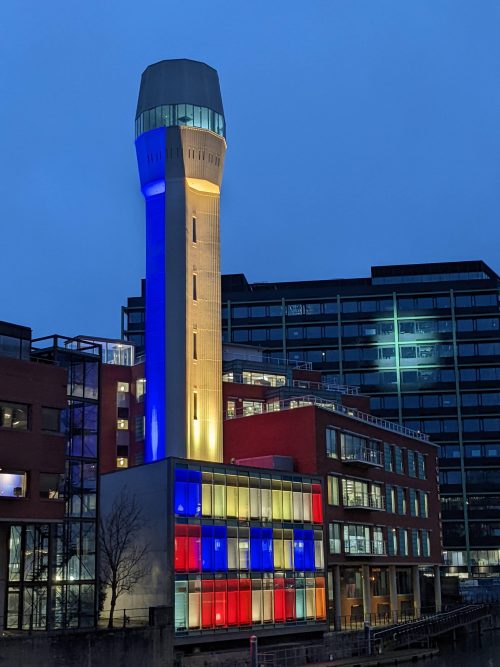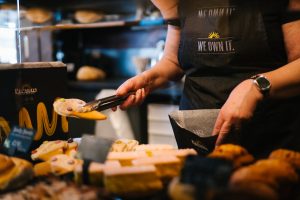Bristol office block once among most polluting in city on course for net zero

A Grade II-listed Bristol office block, which was once amongst the most polluting buildings in the city, is now on course to achieve net zero thanks to a grant from the West of England Mayoral Combined Authority.
The Cheese Lane Shot Tower, home to charity The Workforce Development Trust, has been a distinctive feature of Bristol’s skyline for decades.
The brutalist behemoth – located a stone’s throw from Temple Way (A4044) – was built as the headquarters of the Sheldon Bush and Patent Shot Company Limited – manufacturers and suppliers of lead shot.
Like so many others, the building’s history is closely intertwined with that of the city’s industrial heritage, having opened during the late 1960s as a replacement for the original 18th century lead shot tower. The first lead shot tower, located in Redcliffe, was built by Bristolian William Watts, the inventor of the lead shot tower manufacturing process, who patented the technology in 1782. Lead shot continued to be manufactured in Bristol well into 1990s, before it was banned due to environmental concerns.
The ‘tower method’ of lead shot production is known to release toxic chemicals into local waterways. So much so that in a 1983 newspaper article the Bristol Evening Post, as it was then known, accused Sheldon Bush of poisoning birdlife and damaging wetlands across the city. Following Sheldon Bush’s eventual closure, the 142ft tower laid empty until it was converted into offices around the turn of the millennium.
Considering the building’s transformation from a toxic waste producer to an energy efficient modern office space, capable of housing around 80 employees, chief executive of The Workforce Development Trust, John Rogers, describes the tower’s recent carbon cutting overhaul as “quite the turnaround”.
“It is an irony,” he said. “That a building which at one point was producing a cocktail of toxic chemicals causing untold environmental damage can now be held up as a symbol for a much cleaner, greener future and economy for the city.”
With the support of a Green Business Grant from the Mayoral Combined Authority, the building has been fully upgraded and retrofitted with a range of carbon reduction measures, including low energy LED lighting and solar panels. Green Business Grants are designed to support SMEs in the West of England region to purchase and install new products and equipment to reduce their greenhouse gas emissions, cut utility costs and improve energy efficiency.
A total of £2m has been made available for businesses across the region but those who are interested will need to apply by March next year when the scheme comes to a close.
Dan Norris, Mayor of the West of England said: “It’s great to see our Green Business Grants make a real impact on an iconic piece of Bristol’s skyline. Cheese Lane is a towering example of how my Mayoral Combined Authority is helping local businesses harness solar power.”
“I’m proud of how we’ve helped over 700 West of England businesses cut costs and save carbon emissions, helping us deliver net zero in a just way.”
The Workforce Development Trust, a charity group that supports the NHS and other frontline public services to develop and maintain a sustainable workforce, estimates that up to 18% of its energy usage will now be generated from solar. In Co2 terms, this equates to roughly the equivalent of 2 tonnes of greenhouse gases per year.









